
Arthur Robert Jensen was an American psychologist and writer. He was a professor of educational psychology at the University of California, Berkeley. Jensen was known for his work in psychometrics and differential psychology, the study of how and why individuals differ behaviorally from one another.

An intelligence quotient (IQ) is a total score derived from a set of standardised tests or subtests designed to assess human intelligence. The abbreviation "IQ" was coined by the psychologist William Stern for the German term Intelligenzquotient, his term for a scoring method for intelligence tests at University of Breslau he advocated in a 1912 book.
Discussions of race and intelligence – specifically regarding claims of differences in intelligence along racial lines – have appeared in both popular science and academic research since the modern concept of race was first introduced. With the inception of IQ testing in the early 20th century, differences in average test performance between racial groups were observed, though these differences have fluctuated and in many cases steadily decreased over time. Complicating the issue, modern science has concluded that race is a socially constructed phenomenon rather than a biological reality, and there exist various conflicting definitions of intelligence. In particular, the validity of IQ testing as a metric for human intelligence is disputed. Today, the scientific consensus is that genetics does not explain differences in IQ test performance between groups, and that observed differences are environmental in origin.
Sociobiology is a field of biology that aims to explain social behavior in terms of evolution. It draws from disciplines including psychology, ethology, anthropology, evolution, zoology, archaeology, and population genetics. Within the study of human societies, sociobiology is closely allied to evolutionary anthropology, human behavioral ecology, evolutionary psychology, and sociology.
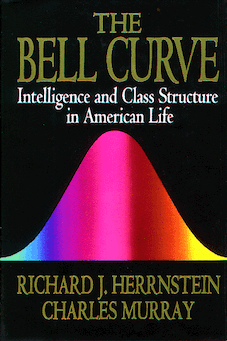
The Bell Curve: Intelligence and Class Structure in American Life is a 1994 book by psychologist Richard J. Herrnstein and political scientist Charles Murray, in which the authors argue that human intelligence is substantially influenced by both inherited and environmental factors and that it is a better predictor of many personal outcomes, including financial income, job performance, birth out of wedlock, and involvement in crime than are an individual's parental socioeconomic status. They also argue that those with high intelligence, the "cognitive elite", are becoming separated from those of average and below-average intelligence, and that this separation is a source of social division within the United States.
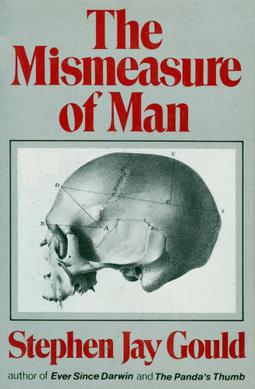
The Mismeasure of Man is a 1981 book by paleontologist Stephen Jay Gould. The book is both a history and critique of the statistical methods and cultural motivations underlying biological determinism, the belief that "the social and economic differences between human groups—primarily races, classes, and sexes—arise from inherited, inborn distinctions and that society, in this sense, is an accurate reflection of biology".
Nature versus nurture is a long-standing debate in biology and society about the relative influence on human beings of their genetic inheritance (nature) and the environmental conditions of their development (nurture). The alliterative expression "nature and nurture" in English has been in use since at least the Elizabethan period and goes back to medieval French. The complementary combination of the two concepts is an ancient concept. Nature is what people think of as pre-wiring and is influenced by genetic inheritance and other biological factors. Nurture is generally taken as the influence of external factors after conception e.g. the product of exposure, experience and learning on an individual.
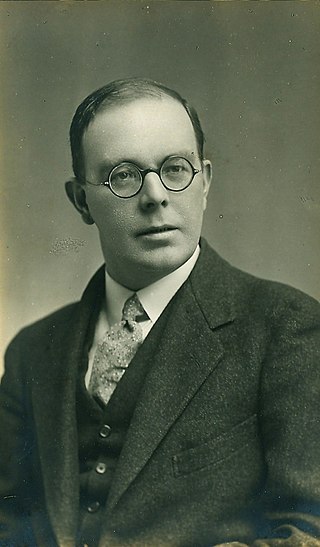
Sir Cyril Lodowic Burt, FBA was an English educational psychologist and geneticist who also made contributions to statistics. He is known for his studies on the heritability of IQ.

Richard Lynn was a controversial English psychologist and self-described "scientific racist" who advocated for a genetic relationship between race and intelligence. He was the editor-in-chief of Mankind Quarterly, a white supremacist journal. He was a professor emeritus of psychology at Ulster University, but had the title withdrawn by the university in 2018. Lynn was lecturer in psychology at the University of Exeter and professor of psychology at the Economic and Social Research Institute, Dublin, and at the University of Ulster at Coleraine.
Steven Peter Russell Rose is an English neuroscientist, author, and social commentator. He is an emeritus professor of biology and neurobiology at the Open University and Gresham College, London.

Not in Our Genes: Biology, Ideology and Human Nature is a 1984 book by the evolutionary geneticist Richard Lewontin, the neurobiologist Steven Rose, and the psychologist Leon Kamin, in which the authors criticize sociobiology and genetic determinism and advocate a socialist society. Its themes include the relationship between biology and society, the nature versus nurture debate, and the intersection of science and ideology.
Hereditarianism is the doctrine or school of thought that heredity plays a significant role in determining human nature and character traits, such as intelligence and personality. Hereditarians believe in the power of genetics to explain human character traits and solve human social and political problems. Hereditarians adopt the view that an understanding of human evolution can extend the understanding of human nature.
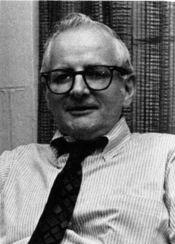
Leon J. Kamin was an American psychologist known for his contributions to learning theory and his critique of estimates of the heritability of IQ. He studied under Richard Solomon at Harvard and contributed several important ideas about conditioning, including the "blocking effect".
Research on the heritability of IQ inquires into the degree of variation in IQ within a population that is due to genetic variation between individuals in that population. There has been significant controversy in the academic community about the heritability of IQ since research on the issue began in the late nineteenth century. Intelligence in the normal range is a polygenic trait, meaning that it is influenced by more than one gene, and in the case of intelligence at least 500 genes. Further, explaining the similarity in IQ of closely related persons requires careful study because environmental factors may be correlated with genetic factors.

"Mainstream Science on Intelligence" was a public statement issued by a group of researchers led by psychologist Linda Gottfredson. It was published originally in The Wall Street Journal on December 13, 1994, as a response to criticism of the book The Bell Curve by Richard Herrnstein and Charles Murray, which appeared earlier the same year. The statement defended Herrnstein and Murray's controversial claims about race and intelligence, including the claim that average intelligence quotient (IQ) differences between racial and ethnic groups may be at least partly genetic in origin. This view is now considered discredited by mainstream science.
Herman Heinrich Spitz was an American psychologist known for his work measuring intelligence among those with developmental disability. He was director of research at the E.R. Johnstone Training and Research Center, which was a state institution for adolescents and young adults with upper-level intellectual disability in Bordentown, New Jersey, until he retired in 1989. He worked under the direction of the Superintendent John M. Wall, who retired in 1990 having served from August 1969.
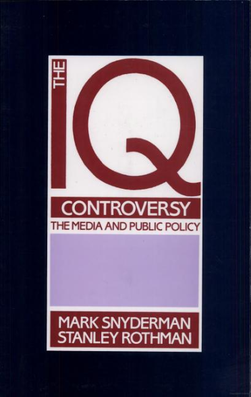
The IQ Controversy, the Media and Public Policy is a book published by Smith College professor emeritus Stanley Rothman and Harvard researcher Mark Snyderman in 1988. Claiming to document liberal bias in media coverage of scientific findings regarding intelligence quotient (IQ), the book builds on a survey of the opinions of hundreds of North American psychologists, sociologists and educationalists conducted by the authors in 1984. The book also includes an analysis of the reporting on intelligence testing by the press and television in the US for the period 1969–1983, as well as an opinion poll of 207 journalists and 86 science editors about IQ testing.
The history of the race and intelligence controversy concerns the historical development of a debate about possible explanations of group differences encountered in the study of race and intelligence. Since the beginning of IQ testing around the time of World War I, there have been observed differences between the average scores of different population groups, and there have been debates over whether this is mainly due to environmental and cultural factors, or mainly due to some as yet undiscovered genetic factor, or whether such a dichotomy between environmental and genetic factors is the appropriate framing of the debate. Today, the scientific consensus is that genetics does not explain differences in IQ test performance between racial groups.
The following outline is provided as an overview of and topical guide to human intelligence:

Intelligence and How to Get It: Why Schools and Cultures Count is a 2009 book about human intelligence by Richard Nisbett, a professor of social psychology at the University of Michigan. The book challenges the hereditarians' argument that IQ is entirely or almost entirely heritable, and argues that nonhereditary factors play a more significant role than hereditarians assert. It also recommends how to tutor children so as to maximize their intelligence. The book also argues that IQ scores are a valid, though imperfect, indicator of general intelligence, while criticizing some of the assertions made about such scores in the 1994 book The Bell Curve. The book's appendix argues that racial differences in IQ are entirely due to environmental factors.











